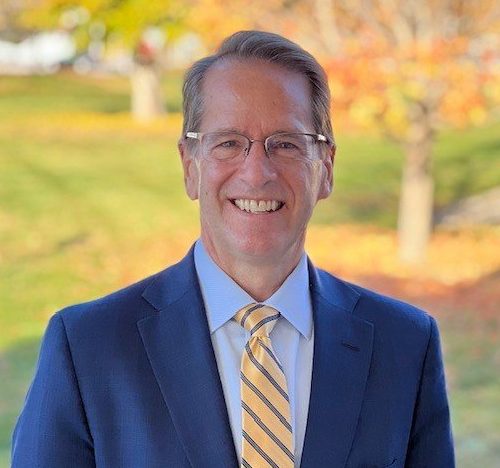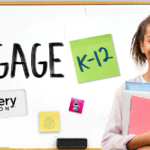The ace-ed.org team recently sat down with New Hampshire Education Commissioner Frank Edelblut to learn more about his vision to make education accessible to everyone in New Hampshire. When he took the position as Commissioner, Edelblut stated, “The equity gap is too large and it has persisted for too long. Everything needs to be on the table as we consider how to improve educational outcomes for all students.” Here is a transcript of that conversation:
Great to connect with you again Commissioner, and we appreciate you making time for us. Let’s dive right into the questions with one about an issue that is incredibly important to you: the equity gap.
Conventional wisdom is that the equity gap has widened over the last two years of the pandemic. What is the situation in New Hampshire?
What we have seen over the last two years is really an exasperation and acceleration of a systemic problem that has plagued education for the past 5 decades. The system that is supposed to be the great equalizer is, in fact, the great divider. Top quartile students are holding their own or showing some growth while bottom quartile students are losing ground. This trend is real across subgroups, whether by race or economic status. The impact of COVID has simply been to amplify that disparity and the urgency to do something about it. Every day in New Hampshire we are driving innovative options into education in a frantic search to reach all of our children. The children only get one opportunity. That should cause all of us to be bold, innovative and impatient, as Jeb Bush has said.
What role has the State Department of Education taken in addressing the equity gap in New Hampshire?
The COVID-19 pandemic has been disruptive to children of all ages, including those from low-income backgrounds. Although the pandemic has resulted in missed learning opportunities for many children, we have strived to tackle this challenge head-on by collaborating with partners to support students in their academic goals and social needs. New Hampshire will continue to address learning loss through customized, unique and engaging learning platforms that focus on individual student achievement and success. We also know that summer is a great time to take advantage of enrichment opportunities. For instance, the New Hampshire Department of Education will be launching its second year of ReKINDling Curiosity, a unique initiative aimed to ensure that every child can attend summer camp. Using federal COVID-19 response funds, students with disabilities and families that reach a certain federal poverty level are eligible for up to $650 in camp fees. A separate summer enrichment program is also being made available to all New Hampshire children through our partners at Prenda; the Prenda Discovery Camp will provide project-based and collaborative summer learning that targets creativity in the arts, technology, science and engineering.
Are there some specific programs you can point to that are improving student access to the engaging learning opportunities that lead to improved student outcomes?
There are many programs currently underway in New Hampshire that aim to engage students and help them succeed. Last summer, the New Hampshire Department of Education partnered with Discovery Education’s K-12 learning platform to provide high quality instructional material statewide. This initiative has snowballed, with more than 216,000 digital resources being used throughout New Hampshire in less than eight months – a benefit to both educators and students as they aim to close the gap on missed learning from the pandemic. NHDOE also launched the Recovering Bright Futures program to bring a new and innovative instructional model to students and families through the use of community learning pods. A separate tutoring program, Yes! Every Student, provided $2 million for students impacted by the pandemic to support learning. In addition, more than 1,600 children throughout the state were approved for Education Freedom Accounts this past fall – a milestone that provided flexibility and helped expand educational options as state funded per-pupil adequacy grants were redirected to educational programming for a variety of learning experiences.
When we talk about an equity gap, I believe that extends to professional learning—we have some districts that have robust professional initiatives, and others have limited opportunities. How is the state helping to address this disparity?
Significant efforts have been undertaken to address this imbalance. Recently, NHDOE partnered with The Regulated Classroom to assist teachers throughout the state in preparing their students for learning and equipping educators with resources to reduce stress and dysregulation in the classroom. It also previously collaborated with Granite State College to bring professional training development to all New Hampshire educators, a project intended to build educator capacity to design and implement remote instruction when it was warranted. In addition, Discovery Education has offered New Hampshire educators with ongoing professional learning designed to help them realize the return on the state’s edtech investment.
Do you see a future for the programs that were set up to address equity gaps in education across New Hampshire during the pandemic?
One of the advantages of the significant influx of federal COVID relief funds has been the ability to fund educational innovation to reach and address the missed learning that so many students experienced. Where these efforts have the most impact, they will almost certainly continue into the future.
What’s one lesson about the K-12 public education system in New Hampshire you learned during the pandemic that you’d like to share with educators and policy makers nationwide?
I think our Rekindling Curiosity program best sums up what I see as our most important lesson. Students, families and educators lives and livelihoods have been turned upside down over the last year. Rekindling Curiosity is a way to help our students settle and, once again, be a child. When our students regain that innate childhood curiosity, they are natural learners and can overcome most any obstacle.
Once again Commissioner, thank you for your time, and we appreciate your candor.
The American Consortium for Equity in Education, publisher of the "Equity & Access" journal, celebrates and connects the educators, associations, community partners and industry leaders who are working to solve problems and create a more equitable environment for historically underserved pre K-12 students throughout the United States.
- American Consortium for Equity in Educationhttps://ace-ed.org/author/admin/
- American Consortium for Equity in Educationhttps://ace-ed.org/author/admin/April 23, 2025
- American Consortium for Equity in Educationhttps://ace-ed.org/author/admin/
- American Consortium for Equity in Educationhttps://ace-ed.org/author/admin/







